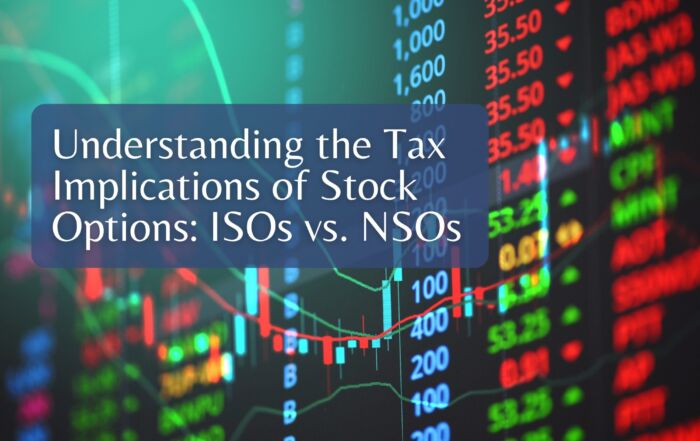Is Direct Indexing the Right Strategy for You?

In the early 2000s, a new concept in investing called Exchange Traded Funds (ETFs) took over the investing world. Since the mass launch of ETFs, mutual funds have become the investing vehicle of the past. ETFs can take on many strategies now, but initially, it became the cheapest investing vehicle for indexing. With ETFs also came new tax efficiencies that made mutual funds not as attractive. Today, there is a new strategy that is making waves in the investment industry called Direct Indexing. Perhaps this is the affluent investor’s new ETF.
What is Direct Indexing?
Direct indexing is an investment strategy that uses technology software to systematically transition an investment account’s legacy allocation (that large stock holding you have with a low-cost basis) over time to a target benchmark’s (think S&P 500) risk exposure. Traditionally, investors use direct indexing to replicate gaining exposure to U.S. large-cap equity indices, but strategy benchmarks can vary across broad U.S. market-cap and style exposures, as well as broad international equity indices. While different providers’ investment processes may vary, direct indexing in a nutshell is accomplished by purchasing a large quantity of individual stocks in an account to replicate the target index’s risk exposures (e.g. purchasing stocks to replicate the S&P 500 index). The technology guides portfolio managers to tax efficiently rebalance portfolios on a frequent basis. For example, if you had $500,000 in Home Depot stock in a $1 million dollar portfolio, you could buy the S&P 500 index, and exclude Home Depot in order to limit additional exposure to the company. Then, when opportunities come to take losses in the portfolio, you could take gains in your large Home Depot stock holding and offset it with losses in other securities.
Primary Benefits
The primary goal of direct indexing is to lower an investor’s capital gains tax bill. Direct indexing software technology reviews accounts constantly throughout the day. The software will recommend trades in accounts to capture losses in order to reduce taxes while simultaneously also looking to reduce and/or keep an account’s tracking error in-line relative to the strategy benchmark. Tax loss harvest opportunities are more prevalent in a direct indexing strategy due to the account owning a large quantity of stocks.
Listed below is a summary of the main benefits that direct indexing strategies offer:
- Tax Efficiency
- Maximize tax loss harvesting efficiency. Losses can then be used to offset gains in other client investment portfolios.
- Systematic realized loss capture leads the portfolio to outperform the reference index on an after-tax basis.
- Reduce Concentrated Stock Risk
- For accounts that transfer in large basis legacy stocks in the strategy.
- Tax loss harvest proceeds are recycled and used to reduce a legacy account’s tracking error to its reference benchmark. This re-allocation over time reduces concentrated stock risk and increase the portfolio’s overall diversification.
- Customizable
- Investors have the ability to exclude individual stocks and/or industry categories.
- This is only recommended in certain client situations.
Strategy Shortcomings
- Higher Costs:
- Direct indexing providers charge an asset management fee to manage the strategy, although Wiser’s direct indexing partner is providing our clients with a very competitive fee which we believe is among the best management fee rates across the industry.
- Higher Investment Minimums:
- Unlike some index funds, which can be purchased at a relative low dollar amount per share, most direct indexing strategies require a minimum $250,000 initial investment. However, Wiser’s direct indexing provider requires a much lower investment minimum than the aforementioned industry standard.
- Investment Implementation Time Lag:
- It typically takes more time to implement and invest a direct indexing separately managed account as compared to an account invested in traditional equity ETFs and mutual funds.
- We are constantly evaluating our implementation process and looking for ways to increase efficiencies within our investment implementation process.
Ideal Client for Direct Indexing
- High net worth individuals who have investable assets in excess of $750,000
- Taxable investors who are looking to take advantage of the strategy’s core benefits
- Comfortable with holding a separately managed account investment strategy
Have more questions? Contact Us
Andrew Pratt, CFA
Investment Manager, Wiser Wealth Management
Share This Story, Choose Your Platform!
Wiser Wealth Management, Inc (“Wiser Wealth”) is a registered investment adviser with the U.S. Securities and Exchange Commission (SEC). As a registered investment adviser, Wiser Wealth and its employees are subject to various rules, filings, and requirements. You can visit the SEC’s website here to obtain further information on our firm or investment adviser’s registration.
Wiser Wealth’s website provides general information regarding our business along with access to additional investment related information, various financial calculators, and external / third party links. Material presented on this website is believed to be from reliable sources and is meant for informational purposes only. Wiser Wealth does not endorse or accept responsibility for the content of any third-party website and is not affiliated with any third-party website or social media page. Wiser Wealth does not expressly or implicitly adopt or endorse any of the expressions, opinions or content posted by third party websites or on social media pages. While Wiser Wealth uses reasonable efforts to obtain information from sources it believes to be reliable, we make no representation that the information or opinions contained in our publications are accurate, reliable, or complete.
To the extent that you utilize any financial calculators or links in our website, you acknowledge and understand that the information provided to you should not be construed as personal investment advice from Wiser Wealth or any of its investment professionals. Advice provided by Wiser Wealth is given only within the context of our contractual agreement with the client. Wiser Wealth does not offer legal, accounting or tax advice. Consult your own attorney, accountant, and other professionals for these services.





